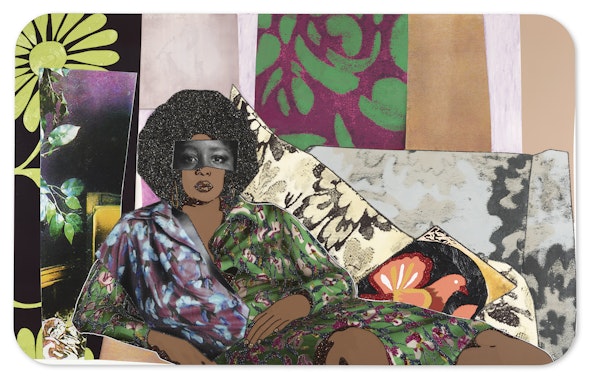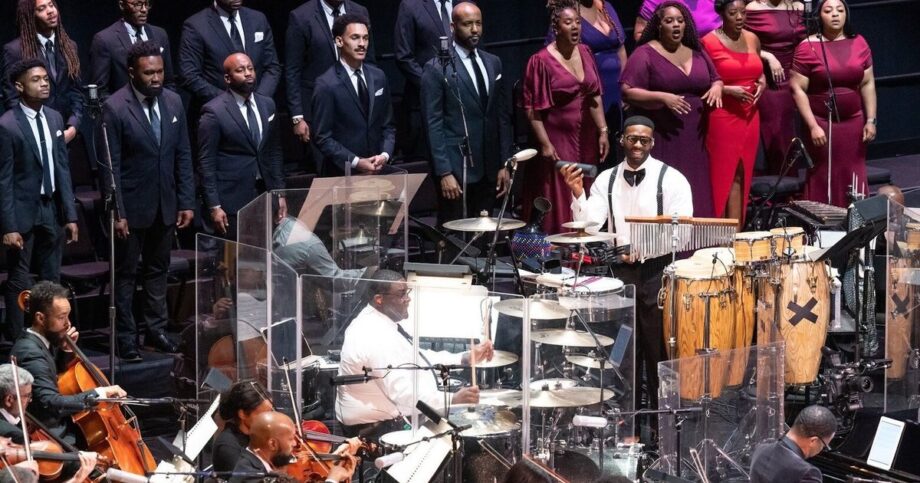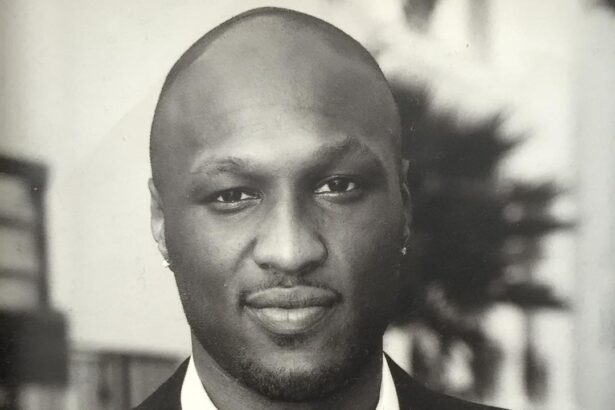With a 50-piece orchestra, a 40-voice chorus, acclaimed soloists — including regular Seattle Opera collaborator Brandie Sutton — and an emcee appearance from Washington state Sen. T’wina Nobles, D-Fircrest, the third annual “Songs of Black Folk: Music of Resistance & Hope” returns to the Paramount Theatre June 16 to celebrate Juneteenth and the tradition of Black music in America.
This wide-ranging, genre-busting performance is the brainchild of the Rev. Leslie Braxton, senior pastor at New Beginnings Christian Fellowship in Kent. Braxton grew up in the Tacoma area, surrounded by music both secular and spiritual, and considers the show a product of his family’s artistic passion.
“My mother [Claudette Nash] was a 60-year church musician who always wanted to be a concert pianist,” he said last week, speaking via phone from the 110th Hampton University Ministers’ Conference. “She was an honor roll student at Lincoln High School [in Tacoma] in 1957. There were no scholarships for Black students then.” With limited recourse to pursue a career in classical music, Nash channeled her passion into roles as pianist and choir director at her local church, Bethlehem Baptist, founded in 1890.
Through his mother and her record collection, Braxton says he was “constantly involved in music” as a child. But it wasn’t until he went east for school that he witnessed high-value productions of the music he’d grown up listening to.
Reflecting on his upbringing in the Pacific Northwest, Braxton says, “I had my first Black classroom teacher at 24 years old, during my second year at Rochester [Colgate Rochester Crozer Divinity School]. That’s one thing that drives this show. Imagine being 24 years old at grad school when you have your first Black teacher.”
Outside of the classroom, Braxton was struck by the variety and quality of Black musical performance in East Coast cities. “When I came back out to the Pacific Northwest in 1999,” he says, “I wanted to drag west of the Mississippi, and north of California, a musical production that featured world-class African American talent. This dream lived in my head for 20 years.”
The dream took shape when the Biden administration announced in 2021 that Juneteenth would be recognized as a federal holiday. The following year, Braxton felt that, especially with Seattle’s second Black mayor, Bruce Harrell, newly in office, the stage was set. He tapped his nephew, Ramón Bryant Braxton, who’d studied music at Morehouse College in Atlanta and Morgan State University in Baltimore, to be the musical director. The younger Braxton began playing trumpet in fifth grade and attributes his musical success to varied learning environments: “I got good formal classical training in school,” he says, “but I was able to apply that in churches. I read music in school. I learned to play by ear in church.” This year marks his third as SBF’s musical director.
The program’s first half will center on the many musical genres — blues, jazz, R&B, hip-hop, rock ’n’ roll — that derive from enslaved people brought from Africa to America and evolved since then. “This show,” says the Rev. Braxton, “is about the tradition of African music that jumped the Atlantic, and the 400-year odyssey of Black people in this country.”
Ramón Bryant Braxton plans to focus the show’s second half around soul music from the ’60s and ’70s, and plans to link that theme with Black fashion as a tribute to André Leon Talley, the first Black editor of Vogue Magazine, who died in 2022, and whom the musical director calls “a close friend.”
“’Songs of Black Folk’ is for everyone,” the Rev. Braxton says. “It celebrates all of the uniquely American music forms which came from Black folks. We are a marginalized people who had to fight our way into the mainstream of American culture. This connects us to other marginalized groups. We’ve all fought for access to the American dream. African American music is an inspiration to anyone who has aspired to something better than where they come from. That’s what this music is all about.”




